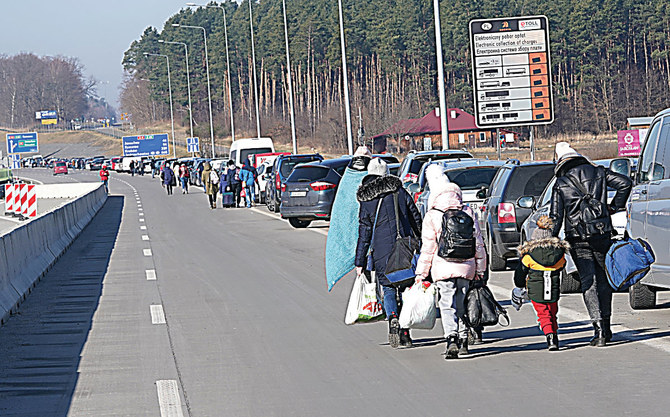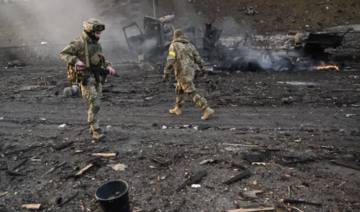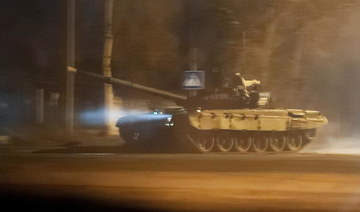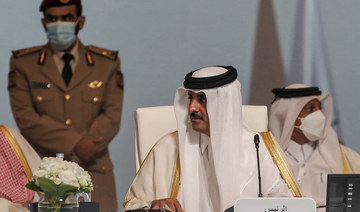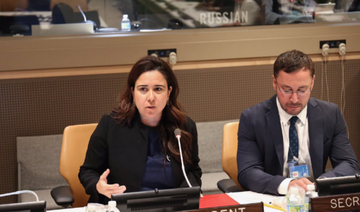DUBAI / JEDDAH: The world woke up on Thursday morning to the news of a full-scale Russian invasion of neighboring Ukraine. It was the beginning of yet another conflict, with destruction, suffering, displacement and death sure to follow.
In a televised address on Feb. 21, Russian President Vladimir Putin justified the assault as a defense of the self-proclaimed Donetsk and Luhansk People’s Republics in eastern Ukraine. He said the leaders of the two separatist territories had asked Moscow for military help against Kyiv after Putin recognized their independence that day.
For Ukrainians working in Arab countries, distance has offered safety from the perils of living in a war zone, but it has done little to assuage their anxieties while their families and friends remain in harm’s way, tens of thousands of miles away.
Mia, a 26-year-old Ukrainian who moved to Jounieh in Lebanon in 2018 from Kyiv, does not need to scroll through her smartphone to get news updates about her home country. She has been receiving constant text messages and phone calls from loved ones who are trapped in cities now in the line of fire.
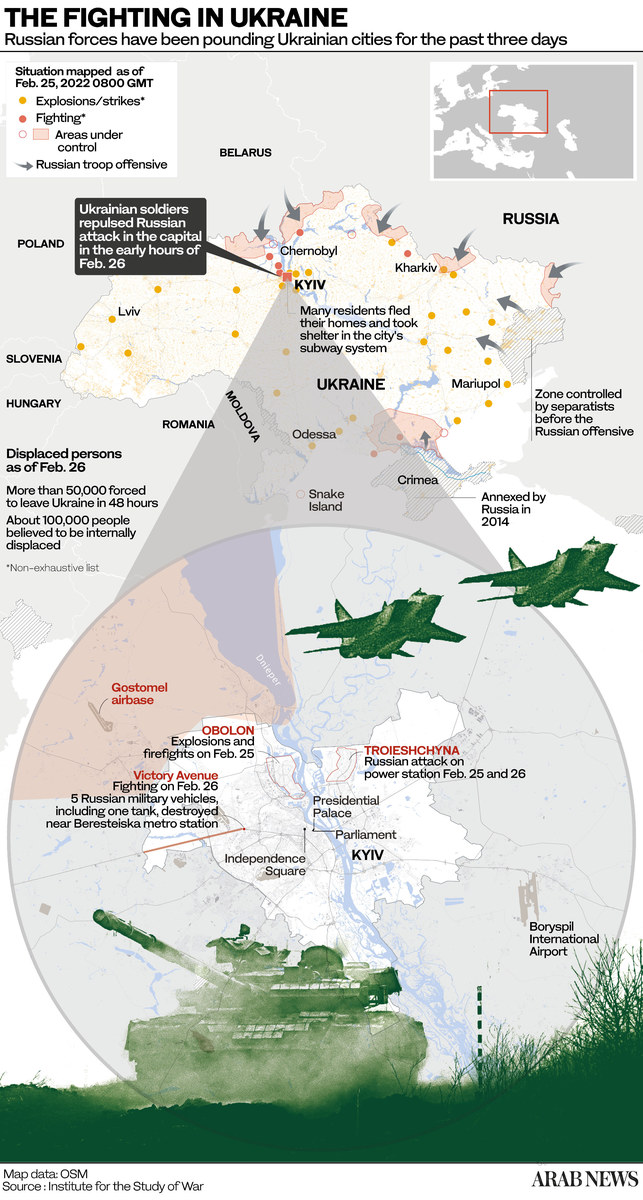
“I find myself sending messages all hours of the night to my parents and friends just to make sure they are getting through. I get very anxious when a text takes time to be delivered because I immediately start to think of the worst, that my parents and my younger brother may have been killed,” Mia, who gave only her first name, told Arab News.
“My parents and my brother, who is 12, are staying in an underground bomb shelter. They have never hurt anybody in their lives. We do not deserve this,” she said
Nevertheless, Mia feels that the war has brought out the best in Ukrainians back home. “Today, I am proud to be Ukrainian. I am proud of my family, my people and my president,” she said. “May we see the light at the end of the tunnel.”
Opinion
This section contains relevant reference points, placed in (Opinion field)
Similar to Mia, life of late is full of stress, fear and worry for Alissa Alchimali, a Kuwait-based Lebanese Ukrainian whose family and friends are now scattered across Kyiv. They have abandoned their homes and belongings as they seek shelter from falling shells and mortars, she told Arab News. Some of them have fled to rural areas in search of safety.
Alchimali, who has been living and working in the Gulf state for more than four years now, said her mother is safe in Beirut, but the rest of her extended family is now internally displaced in Ukraine. She said she and her mother worry all day about their loved ones as they hear of missiles striking populated areas of Kyiv and other major Ukrainian cities.
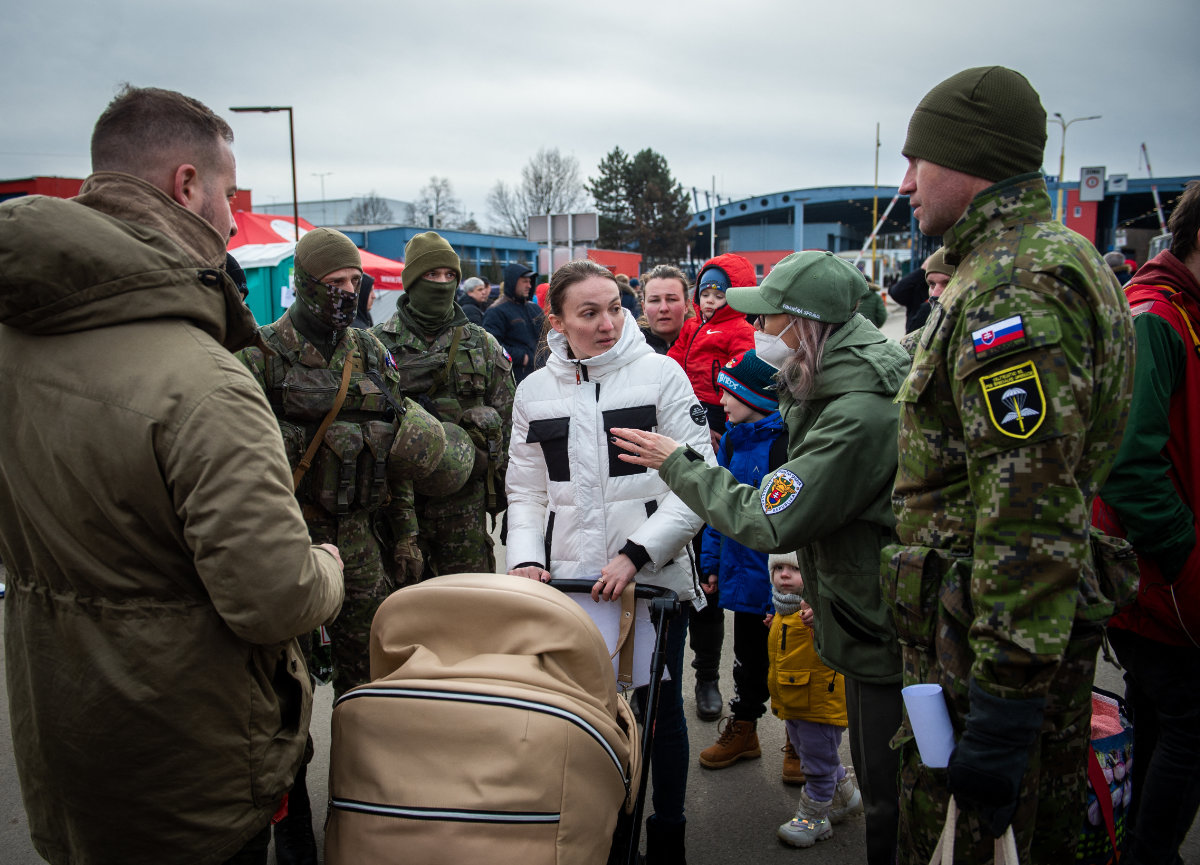
Members of the border guard and Slovak soldiers help a Ukrainian woman pushing a pram after she crossed the border in Vysne Nemecke, eastern Slovakia, on Feb. 26, 2022. (Photo by Peter Lazar / AFP)
“Everybody I know has fled their home, looking for a place to stay near the border or in bomb shelters in their town,” she told Arab News.
“My godmother’s family left their home when there was daylight, hoping to reach a town near the (Polish) border. But while they were halfway through the journey, bombs began falling, so they were forced to seek shelter in a town nearby and sleep on some stranger’s couch.”
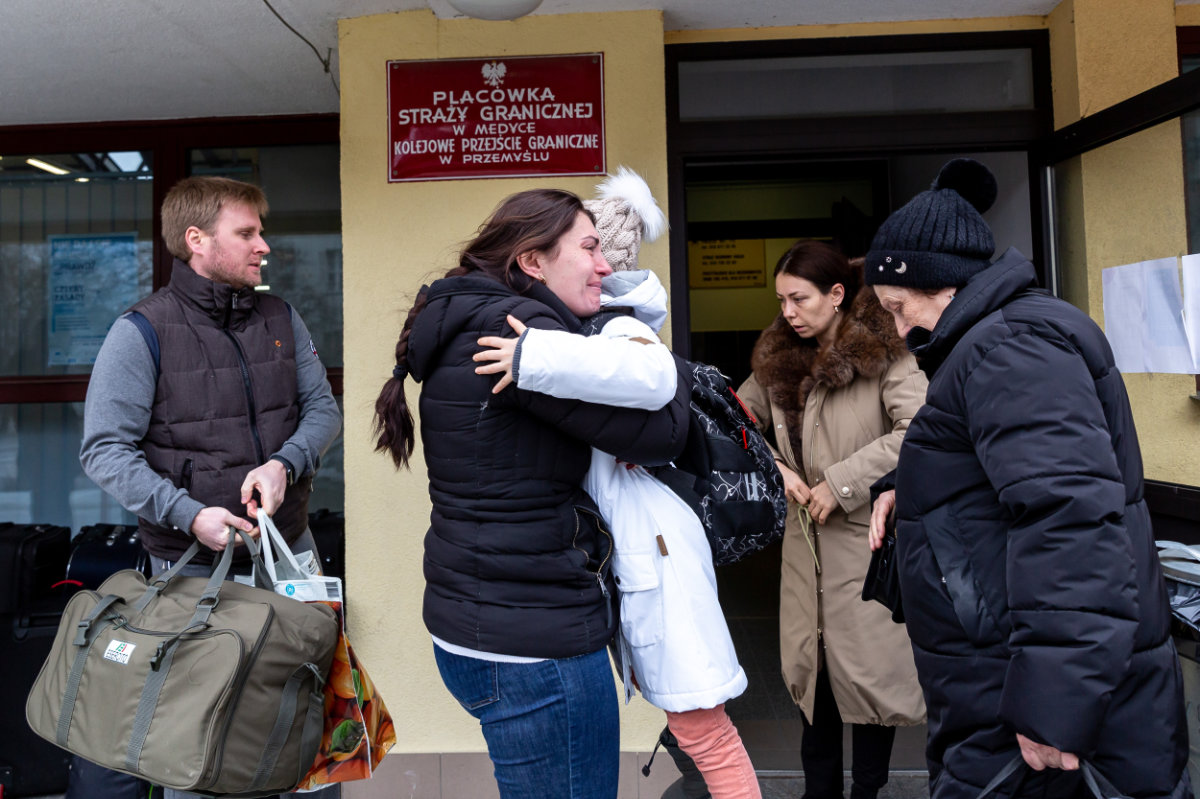
A Ukrainian family greets in tears at the railway station in Przemysl as tens of thousands Ukrainians fleeing Russian invaders enter Poland on Feb. 25, 2022. (Getty Images)
Alchimali added: “This is stressful because you don’t know what’s going to happen or where they are going to hit next. It seems like wherever people are going, the enemy forces are targeting that place. Even rural areas that one would consider not worthy of targeting are unsafe.”
Bombarded by news of the war from social media feeds, Alchimali has been compelled to add a new task to her daily routine: Checking up on family members and friends in the morning, and again in the evening. She said she hears stories about roads clogged with traffic, food provisions running low, empty supermarkets shelves and mile-long queues for fuel.
“People are in a real panic mode,” she told Arab News, adding that it comes as a huge relief every time she sees the message: “We are okay. We are still alive.”
INNUMBERS
150,000 - Ukrainians who have fled the country since the Russian invasion began on Feb. 24.
87 Total border crossings between Ukraine, Poland, Hungary, Slovakia, Romania and Moldova.
For Iryna, a 29-year-old resident of Dubai, the war back home has forced her to look constantly for news about her extended family. Originally from central Ukraine, her family is spread across towns in the east and west of the country.
She said her mother is in Kuzmintsi, a small village southwest of the capital near the Moldovan border, while her father is in Kyiv. An aunt and uncle are in Vasylkiv, a small province just outside of Kyiv that recently came under bombing.
“Having one’s family members in different towns across the country is not uncommon among Ukrainians. Part of my family has now moved to a bomb shelter at Metro Sportu in Kyiv. I had hoped such a situation would not arise,” said Iryna, who also gave only her first name.

A man hugs a girl as Ukrainians fleeing Russian invaders enter Poland at the Korczowa-Krakovets border crossing on Feb. 26, 2022. (JANEK SKARZYNSKI / AFP)
“I knew that the Russians moved their troops to our borders, but we all thought they were just trying to scare us as they had done before. I read reports of ambassadors being evacuated, but even then I was skeptical
“I did not think my hometown would be invaded without any notice at at 5 a.m. We were hoping the invaders would be deterred by the public outcry and sanctions. But now it seems they can bomb, attack and invade any country without any consequences."
Iryna said her uncle in Poland has heeded President Volodymyr Zelenksy’s appeal to Ukrainians abroad to return and take up arms in defense of the country.
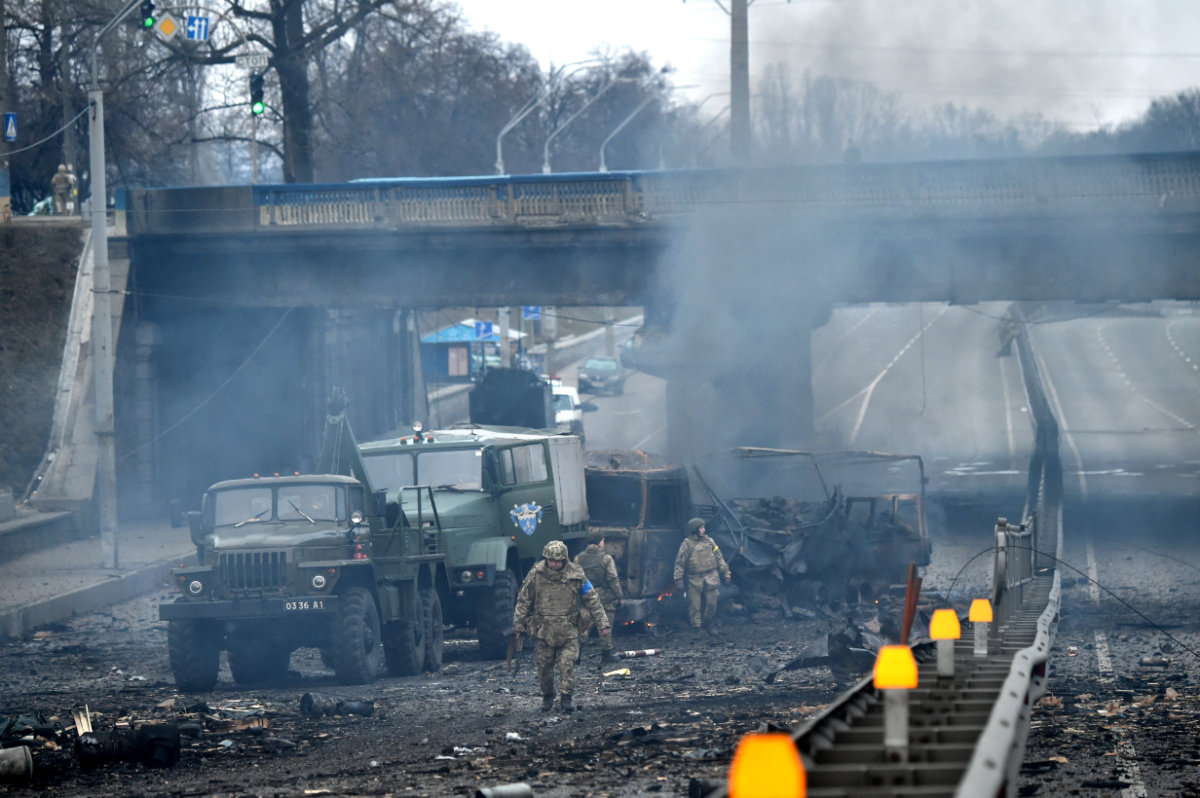
Ukrainian troops are seen at the site of a fighting with a Russian raiding group in Kyiv in the morning of Feb.26, 2022. (Sergei Supinsky / AFP)
“We always think war can never come to us, but look at Syria, Bosnia and now Ukraine,” she told Arab News. “It is just a matter of time before we know who is next. People’s political views, ignorance and indifference empower their governments. It is very comfortable to be silent.
“What is happening to Ukraine is such a shame. But, then again, nothing is forever.”
Only time will tell how long the invasion will be, but weeks of diplomacy did fail to deter Russia, which massed more than 150,000 troops on Ukraine’s borders, in what the West said was Europe’s biggest military buildup since the Second World War.
Western allies had initially imposed some sanctions on Russia, then followed through on Thursday with vows to try and heavily punish Russia economically.








